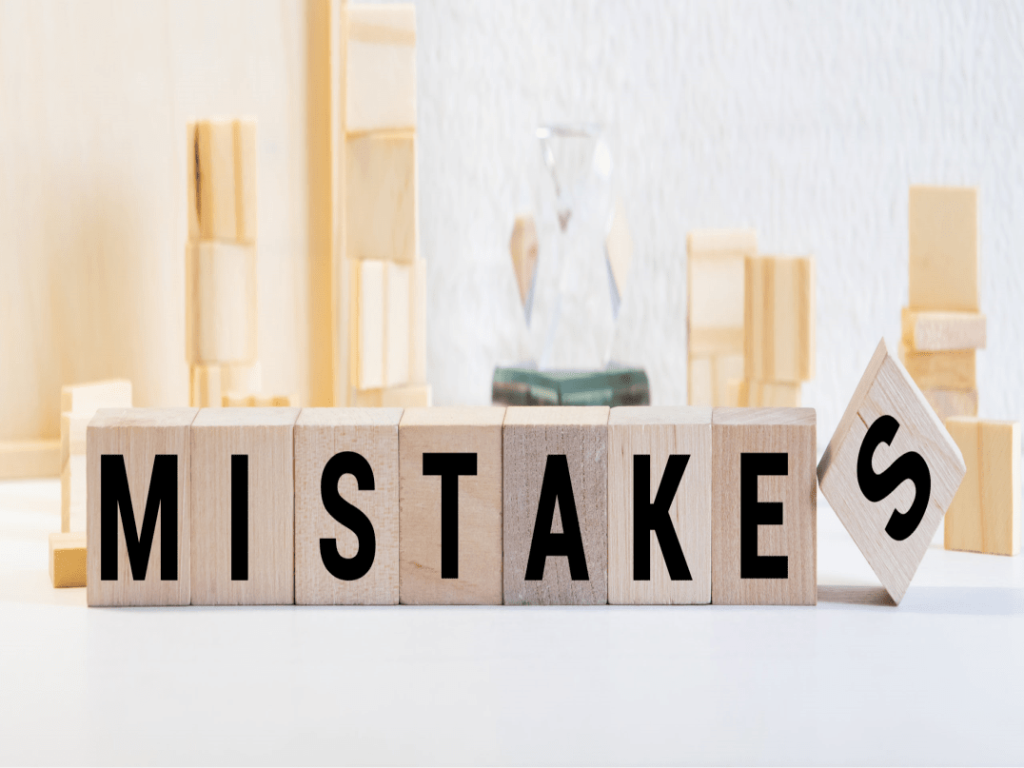So, you made a mistake in Arabic class today and when the teacher corrected you, you felt foolish. You may have even thought to yourself, “I’m never going to speak Arabic well. I might as well just give up!” But you know what? There’s no need to feel that way because the truth is that learning Arabic is a challenge for most learners. The fact is, you’re going to make mistakes. Everyone does.
Now, this is usually the place where you probably are expecting us will to “embrace your mistakes” and “learn from them”. However, while that may be good advice, we’re not going to be doing that today. Actually, think of today’s blog rather as a kind of preventative maintenance. Think of it that way because today you’re not going to learn from your mistakes. Rather, today you’re going to be learning from the mistakes of others. This way, you’ll learn to overcome them before you can make the same mistakes yourself.
So, without further ado, let’s get started. Here are the common mistakes that most Arabic learners make when they study the language:
1. KNOWING CLASSICAL ARABIC FROM SPOKEN ARABIC
A basic of Arabic language learning is that when you learn Arabic you are usually learning more than one language. Classical Arabic is the written form of the language, and Arabs rarely use this style in their everyday speech. However, Arabs generally use their regional dialects in spoken Arabic. As a result, knowing the difference between the two can help you successfully learn Arabic!
2. NOT SETTING A REALISTIC END GOAL
Believe it or not, trying to find the fastest way to learn Arabic is not a realistic end goal. Truth be told, if you set an end goal for yourself you’ll actually learn Arabic faster. This is because you’ll be laser focused on the outcome of learning Arabic instead of jumping all over trying to learn what you don’t really need. For example, focus on both Modern Standard Arabic and Arabic dialects if your goal is to be completely fluent in Arabic. Likewise, if while figuring out how to learn arabic Islam is your goal, then want to learn Quranic Arabic (or Classical Arabic). Learning for your business trip to Cairo? Then your goal should be becoming fluent in Egyptian Arabic. So, what is it that you want to achieve through your Arabic language lessons?
3. TRYING TO LEARN ARABIC SOLELY ON YOUR OWN
While theoretically it is possible to learn some languages on your own, Arabic isn’t one of them. Thinking that you can just pick up a book and start speaking Arabic the next day is … well, unrealistic. One reason why it’s impractical is that Arabic pronunciation can be tricky. Reading a book really can’t teach you that. However, a language partner or qualified Arabic instructor can help develop your speaking skills. As a result, you’ll be speaking Arabic like a native in no time at all.
4. PRACTICING SPEAKING ONLY IN CLASS
While we’re on the subject, if you’re only speaking in during class, it’s frankly not enough to be successful at Arabic. Arabic pronunciation is, to say the very least, unique among languages. Many words you’ll learn you will be speaking from the back of your throat. This is likely something you’re not used to, especially if you speak a Latin-based native language. Thus, you’ll have to practice every day just to get your throat muscles used to speaking your new language. Again, a language partner or qualified Arabic instructor can help you with that.
5. Arabic Langue Learning is not Same Ol’, Same Ol’
Maybe you studied some Spanish or French in high school. Maybe you grew up with bilingual parents who spoke Tagalog and English at home. Whatever the case may be, one of the biggest mistakes you could make is to treat Arabic like it’s any other language. Many have come before you with that idea. They thought, “When I learned German in the Army, it was a piece of cake. Arabic should be the same.” Then, they start learning and find that they aren’t moving as quickly forward as they’d like to. So, they quit.
Friends, don’t treat Arabic lightly. Instead, understand that it might take you a bit longer to learn Arabic. Most of all, be patient with yourself. Don’t beat yourself up if you make a mistake. Now that you know what to expect, you’ll find Arabic a little easier and you’ll be more successful in the end.
In the meantime, if you’re interested in finding out more about how you can start learning Arabic today, then we have just the thing for you – the Kaleela Arabic language app. Available for both IOS and Android, the Kaleela Arabic language app gets you started in learning Arabic within minutes of downloading it. Even if you’re already taking Arabic courses, the Kaleela app is a great supplement that will have you using Arabic in no time at all. Get your Arabic language course now.
Kaleela – Learn Arabic the Right Way!



